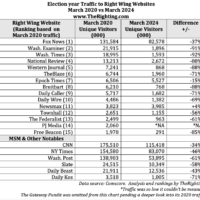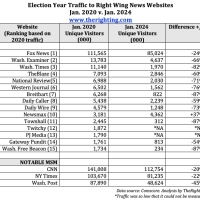President Nixon Had Gas Pains, Too
By Jon Friedman, June 29, 2022
How does that old saw go, again? Those who don’t appreciate the lessons of history will be condemned to repeat them? Something like that. Close enough, anyway.
The inspiration for this axiom comes from the progress of the Jan. 6 hearings. Regardless of your political leanings, the similarities to the Watergate investigation of the early Seventies are undeniable – and inescapable.
As with Watergate five decades ago, the 2022 insurrection hearings are available for consumption on television. Further, both have the suspense of a classic mystery. The pundits bleat: Will we ever learn the real truth? Will we ever get to the bottom of who’s to blame and who will now try to exploit the situation?
Gas Bags and Gas Prices
It’s fair to say that one of the greatest accomplishments of televised hearings, then and now, is shining a light on what happened. No, nothing will change the mind of a staunch right (or left, for that matter) voter. But for those people who have an open mind and want to embrace facts, hearings make you think – and that’s a useful start.
The response these days from Republican leaders is predictable. Clearly these individuals feel assured that theyknow who is to blame for the world’s ills. They prefer to ignore the hearings as much as possible. Have we had a crisis in leadership in Washington, culminating with the hearings? Nah. It is as if the GOP is telling us: Move along, America. Nothing to see here.
Instead, these politicians point an accusatory finger at out-of-control gas prices at the pump, as if the Biden administration wants to celebrate this domestic crisis.
Déjà Vu
Here, too, history intrudes, for it seems that the U.S. experienced a similarly debilitating gas-price crisis at the height of the Watergate investigation. That’s right, Richard Nixon had gas pains, too. Indeed, in 1973-74, U.S. gas prices soared. Public sentiment against Washington escalated. Consumers raged. Nightly newscasts featured long lines of cars waiting to fill up at overwhelmed gas stations
As Michael Corbett, of the Federal Reserve Bank of Boston, pointed out: “On October 19,1973, immediately following President Nixon’s request for Congress to make available $2.2 billion in emergency aid to Israel for the conflict known as the Yom Kippur War, the Organization of Arab Petroleum Exporting Countries instituted an oil embargo on the United States.” As a result, the price of oil jumped from $2.90 a barrel to nearly $12 by January 1974.
Our nation’s long nightmare, to paraphrase President Gerald Ford, finally ended when courageous and dedicated public servants, namely Republican Senators led by Barry Goldwater of Arizona (the 1964 presidential nominee), instead of taking about the price of gas, told Nixon, in no uncertain terms, that he could count on only a handful of votes in the U.S. Senate and that he would consequently be swept from office.
Perhaps it is fitting – and no coincidence – that Led Zeppelin’s popular 1976 in-concert film, The Song Remains the Same, was recorded in July of … 1973. Yes, indeed. The more things change, the more they remain the same. Songs. Politics. Hearings. Gas Prices.
Jon Friedman wrote Jon Friedman’s Media Web column at MarketWatch.com for more than 13 years. He now teaches college in New York State.
Interested in more news about right-wing websites curated especially for mainstream audiences? Subscribe to our free daily newsletter.
























